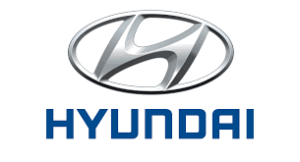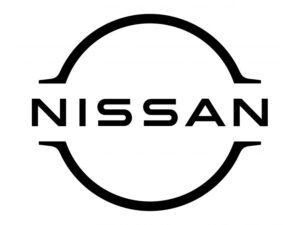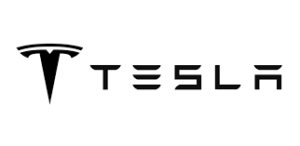Toyota. The name itself conjures images of reliability, efficiency, and innovation. But Toyota’s story goes far beyond its modern reputation. It’s a tale of perseverance, adaptation, and a relentless pursuit of “ever-better cars,” as the company’s motto goes.
Founded in 1937 as an offshoot of the Toyoda Automatic Loom Works, Toyota’s roots lie in the ingenuity of Sakichi Toyoda, a pioneer in textile machinery. His son, Kiichiro Toyoda, recognized the burgeoning potential of automobiles and spearheaded the company’s foray into car manufacturing.

Toyota’s early years were marked by a commitment to continuous improvement. The company embraced a philosophy later known as the Toyota Production System (TPS), emphasizing quality control, waste reduction, and just-in-time manufacturing. This focus on efficiency proved crucial during World War II, when Toyota was tasked with producing trucks for the Japanese military.
Following the war’s devastation, Toyota faced an uphill battle. Yet, the company emerged stronger, fueled by a determination to rebuild and a commitment to quality. The 1950s saw the introduction of the iconic Land Cruiser, a testament to Toyota’s engineering prowess and a vehicle that solidified its reputation for durability.
The 1960s and 1970s were a period of remarkable growth for Toyota. The introduction of the Corolla, a compact, fuel-efficient car, perfectly aligned with the global oil crisis of the 1970s. This, coupled with Toyota’s dedication to quality and reliability, propelled the company into the American market and cemented its place as a major player on the world stage.
Toyota’s innovation continued throughout the late 20th and early 21st centuries. In 1989, Lexus, Toyota’s luxury brand, debuted, challenging established players in the premium car segment. More importantly, in 1997, Toyota unveiled the Prius, the world’s first mass-produced hybrid electric car. This groundbreaking vehicle ushered in a new era of environmentally conscious motoring and solidified Toyota’s position as a leader in sustainable transportation.
Today, Toyota remains a titan of the automotive industry. It boasts a diverse lineup of vehicles, from fuel-efficient compacts to powerful SUVs and eco-friendly hybrids. The company also continues to invest heavily in research and development, exploring alternative fuels and autonomous driving technologies.
Looking ahead, Toyota faces an industry in flux. Emerging electric vehicle manufacturers and the growing importance of autonomous driving pose new challenges. Yet, Toyota’s rich history of adaptation and innovation suggests that the company is well-positioned to navigate the road ahead. One thing remains certain: Toyota’s commitment to “ever-better cars” ensures that it will continue to be a driving force in the automotive world for years to come.
Top Competitors and Alternatives of Toyota
Toyota, as one of the largest automakers globally, faces competition from various companies across the automotive industry. Here are some of its top competitors and alternatives:
1. Volkswagen Group

Website – https://www.vw.com/en.html
Volkswagen Group stands as a major competitor to Toyota on a global scale. Both companies are automotive giants with a vast range of vehicles catering to most consumer segments. This includes compact cars, SUVs, trucks, and luxury sedans. They often find themselves vying for market share in the same categories, with their offerings competing feature-for-feature.
For instance, the Volkswagen Jetta directly rivals the Toyota Corolla in the compact car segment. Both prioritize fuel efficiency and practicality, but the Jetta might offer a more dynamic driving experience, while the Corolla might be known for its slight edge in reliability. Similarly, the Toyota RAV4 squares off against the Volkswagen Tiguan in the crowded compact SUV space. Here, the RAV4 might boast a more affordable starting price, while the Tiguan could counter with a more spacious interior.
Similarly, Volkswagen Passat directly challenges the Toyota Camry in the mid-size sedan arena. Both prioritize comfort, fuel economy, and a suite of standard features. However, the Passat might attract buyers seeking a more European driving experience, while the Camry might hold the upper hand with its reputation for bulletproof reliability. Similarly, the Toyota Highlander squares off against the Volkswagen Atlas in the large SUV segment. Here, the Highlander might offer a more family-friendly interior layout, while the Atlas could counter with its impressive cargo capacity.
Beyond specific models, both Toyota and Volkswagen Group position themselves with distinct brand identities. Toyota is renowned for its bulletproof reliability and strong resale value, while Volkswagen often leans towards European design flair and a focus on driving dynamics. This gives consumers a clear choice: Toyota for peace-of-mind ownership or Volkswagen for a potentially more engaging driving experience.
2. General Motors (GM)

Website – https://www.gm.com/
General Motors (GM) serves as a significant competitor for Toyota, particularly in the North American market. Both auto giants boast long histories and established brand loyalty, offering a wide range of vehicles across various segments. This includes sedans, SUVs, trucks, and even electric cars, placing them in direct competition for customer dollars.
Head-to-head battles are evident across popular categories. For instance, the Chevrolet Malibu directly rivals the Toyota Camry in the mid-size sedan segment. Both prioritize comfort, practicality, and a blend of fuel efficiency and performance. However, the Malibu might attract budget-conscious buyers with its competitive pricing, while the Camry might hold the edge with its reputation for superior fuel economy. Similarly, the Toyota Tacoma faces off against the Chevrolet Colorado in the mid-size truck segment. Here, the Tacoma might be known for its off-road prowess, while the Colorado could counter with a focus on towing capacity and utility.
Beyond specific models, both GM and Toyota cultivate distinct brand images that influence consumer choices. Toyota leans on its reputation for reliability and strong resale values, appealing to buyers who prioritize practicality and long-term ownership. In contrast, GM often emphasizes American heritage and a broader range of powertrain options, including powerful V8 engines alongside fuel-efficient choices. This creates a clear distinction: Toyota for peace-of-mind ownership or GM for a potentially more powerful and feature-rich driving experience.
3. Ford Motor Company

Website – https://www.ford.com/
Ford Motor Company stands as a historic rival to Toyota, particularly within the North American market. Both auto giants boast a rich heritage and strong brand loyalty, offering a diverse range of vehicles across numerous segments. This includes cars, SUVs, trucks, and even a growing electric vehicle presence, creating a fierce battleground for consumer preference.
Direct competition unfolds across popular categories. For instance, the Ford Mustang squares off against the Toyota Supra in the sporty coupe segment. Both prioritize exhilarating performance and a thrilling driving experience. However, the Mustang might attract buyers seeking a muscular American icon with powerful engine options, while the Supra could hold the upper hand with its precision handling and Japanese engineering pedigree. Similarly, the Ford F-Series trucks, including the F-150, compete fiercely with the Toyota Tundra in the full-size truck segment. Here, the F-Series might boast a wider range of engine options and towing capacities, while the Tundra could counter with a potentially smoother ride and superior interior quality.
While both Ford and Toyota offer a compelling mix of vehicles, their brand identities cater to distinct customer desires. Ford, steeped in American tradition, builds a reputation for muscle, power, and a touch of rebellious spirit. Their vehicles often prioritize raw performance and capability, appealing to drivers who crave excitement and a sense of individuality behind the wheel. In contrast, Toyota emphasizes dependability, efficiency, and worry-free ownership. Their focus on practicality and long-term value resonates with those who value a reliable companion on the road. Ultimately, the choice boils down to personal preference: a thrilling adventure with Ford or a smooth, stress-free journey with Toyota.
4. Honda

Website – https://global.honda/en/
Honda emerges as a close competitor to Toyota, particularly in the Asian and North American markets. Both are Japanese automakers known for their reliability and focus on fuel efficiency, offering a wide range of vehicles that directly compete in most segments. This includes compact cars, SUVs, minivans, and even hybrid options, making them frequent rivals for customer dollars.
Head-to-head battles are evident across popular categories. For instance, the Honda Civic directly challenges the Toyota Corolla in the compact car segment. Both prioritize practicality, affordability, and fuel efficiency, making them popular choices for young professionals and families. However, the Civic might attract buyers seeking a more dynamic driving experience with a sportier feel, while the Corolla could hold the edge with its reputation for exceptional reliability and slightly lower maintenance costs. Similarly, the Honda CR-V squares off against the Toyota RAV4 in the compact SUV segment. Here, both offer spacious interiors and family-friendly features, but the CR-V might boast a more refined driving experience, while the RAV4 could counter with a potentially more versatile cargo area.
While both Toyota and Honda share a Japanese heritage and focus on reliability, their brand identities diverge when it comes to driving experience. Toyota prioritizes bulletproof reliability and worry-free ownership, making them the go-to choice for those who value practicality and a car that simply works. Honda, on the other hand, injects a dose of enthusiasm into their vehicles, emphasizing a fun-to-drive character and innovative features. This appeals to drivers who seek a car that delivers not only reliability but also a more engaging journey behind the wheel. Ultimately, the choice boils down to priorities: Toyota for a dependable companion or Honda for a car that injects a bit of joy into the daily drive.
5. Hyundai

Website – https://www.hyundai.com/
Hyundai has emerged as a strong competitor for Toyota, particularly in recent years. Both automakers offer a broad range of vehicles across various segments, including sedans, SUVs, and electric cars, vying for customer attention in a crowded marketplace. However, Hyundai has carved a niche by focusing on value and innovative features.
Direct competition is evident in popular categories. For example, the Hyundai Elantra rivals the Toyota Corolla in the compact car segment. Both prioritize fuel efficiency and affordability, making them attractive options for budget-conscious buyers. However, the Elantra might attract those seeking a more feature-rich experience with its modern tech offerings, while the Corolla could hold the edge with its reputation for slightly better fuel economy and established reliability. Similarly, the Hyundai Tucson squares off against the Toyota RAV4 in the compact SUV segment. Here, both offer spacious interiors and family-friendly features, but the Tucson might boast a more stylish design and a longer warranty, while the RAV4 could counter with a potentially stronger resale value and a more proven track record.
While both Toyota and Hyundai cater to a broad spectrum of car buyers, their brand strengths lie in different areas. Toyota remains the champion of unwavering reliability and strong resale value, making them the trusted choice for those who prioritize a car that simply works and holds its value over time. Hyundai, however, has carved a niche for itself by offering exceptional value for the price. They pack their vehicles with modern features and stylish design, appealing to budget-conscious buyers who still crave a feature-rich and aesthetically pleasing driving experience. Ultimately, the decision comes down to priorities: Toyota for the tried-and-true path of reliability or Hyundai for a potentially more exciting and feature-laden option that won’t break the bank.
6. Nissan

Website – https://www.nissan-global.com/EN/
Nissan stands as a major competitor for Toyota, particularly within their home market of Japan and across many global regions. Both are Japanese automakers with a rich heritage, offering a comprehensive lineup of vehicles that compete directly in most segments. This includes sedans, SUVs, trucks, and even electric vehicles, making them frequent rivals for customer loyalty.
Head-to-head battles are evident across popular categories. For instance, the Nissan Sentra directly challenges the Toyota Corolla in the compact car segment. Both prioritize affordability and fuel efficiency, making them popular choices for first-time car buyers and value-conscious consumers. However, the Sentra might attract buyers seeking a more spacious interior and a potentially more comfortable ride, while the Corolla could hold the edge with its reputation for slightly better fuel economy and a wider range of standard features. Similarly, the Nissan Pathfinder squares off against the Toyota Highlander in the large SUV segment. Here, both offer three-row seating and family-friendly features, but the Pathfinder might boast a more powerful base engine option, while the Highlander could counter with a potentially more luxurious interior and a more established reputation for reliability.
While both Toyota and Nissan share a Japanese heritage, their brand strengths cater to different driving styles. Toyota remains the trusted choice for those who prioritize practicality and long-term value. Their cars are renowned for lasting a long time and retaining their value, making them a smart investment. Nissan, however, injects a dose of excitement into their vehicles. They often emphasize a sportier driving experience and a focus on cutting-edge technology, appealing to drivers who crave a car that delivers not only functionality but also a more engaging and potentially feature-rich journey. Ultimately, the choice boils down to personality: Toyota for the dependable companion that goes the distance, or Nissan for a car that injects a bit of thrill into the daily drive.
7. Tesla

Website – https://www.tesla.com/
Tesla has emerged as a disruptive competitor to Toyota, particularly in the realm of electric vehicles (EVs). While Toyota offers a strong lineup of gasoline-powered cars and hybrids, Tesla has pioneered the mass production of fully electric vehicles. This fundamental difference positions them as rivals vying for the hearts (and wallets) of environmentally conscious car buyers.
Direct competition is limited by Tesla’s current focus on premium EVs. However, their Model 3 sedan competes indirectly with the Toyota Camry and Avalon in the mid-size car segment. Both offer spacious interiors and a comfortable ride, but with vastly different powertrains. The Model 3 boasts impressive acceleration and a long driving range on a single charge, while the Toyota options prioritize fuel efficiency and a proven track record of reliability. Similarly, the Tesla Model Y squares off against the Toyota Highlander in the large SUV segment. Here, both offer three-row seating and family-oriented features, but the Model Y boasts a futuristic design and potential for self-driving capabilities, while the Highlander counters with a wider range of gasoline and hybrid powertrain options and a more established reputation for long-term ownership.
Beyond specific models, Tesla and Toyota represent fundamentally different approaches to the future of mobility. Toyota remains a leader in traditional gasoline and hybrid vehicles, prioritizing practicality, reliability, and a well-established network of dealerships. Tesla, on the other hand, champions the electric revolution, pushing boundaries in battery technology, autonomous driving features, and a minimalist design philosophy. This creates a clear distinction: Toyota for a familiar and reliable driving experience or Tesla for a cutting-edge electric vehicle with the potential for self-driving capabilities.
8. Stellantis

Website – https://www.stellantis.com/en
Stellantis has emerged as a significant competitor for Toyota on a global scale. Both auto giants boast expansive lineups encompassing a wide range of vehicles, catering to most consumer segments. This includes compact cars, SUVs, trucks, and even luxury offerings. As a result, they frequently find themselves battling for market share in the same categories, with their vehicles often going head-to-head on features and price points.
Direct competition unfolds across popular categories. For instance, the Jeep Compass directly challenges the Toyota RAV4 in the compact SUV segment. Both prioritize practicality, comfort, and off-road capability, making them popular choices for adventurous families. However, the Compass might attract buyers seeking a more rugged and iconic design heritage, while the RAV4 could hold the upper hand with its reputation for superior fuel economy and a potentially smoother ride. Similarly, the Ram 1500 truck squares off against the Toyota Tundra in the full-size truck segment. Here, the Ram 1500 might boast a wider range of engine options and a more luxurious interior, while the Tundra could counter with a potentially more reliable powertrain and a focus on towing capacity.
While both Toyota and Stellantis offer a compelling range of vehicles, their brand strengths resonate with different customer desires. Toyota remains the go-to choice for those who prioritize practicality and long-term value. Their reputation for reliability and fuel efficiency makes them a trusted companion on the road. Stellantis, on the other hand, caters to a more adventurous spirit. With brands like Jeep and Ram, they often emphasize a bold design language, a focus on off-road capability in certain models, and a touch of American heritage. This creates a clear distinction: Toyota for a dependable workhorse or Stellantis for a car that injects a sense of adventure and a distinct brand identity into the driving experience.




